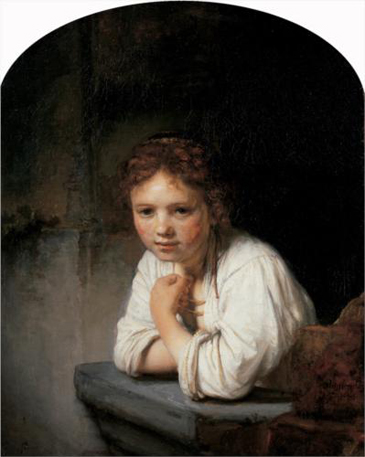A difficult question of priorities
 A
version of this piece was published in the Independent
on the 4th May 2003, under the headline ‘People
may not always be more important than things’. A
version of this piece was published in the Independent
on the 4th May 2003, under the headline ‘People
may not always be more important than things’.
It has been fascinating in recent weeks to observe the
different priorities of the media in reporting the looting
in Iraq. At the more populist end of things, the focus
has been on the trashing of hospitals, but the higher-browed
have rather concentrated on the pillaging of libraries
and museums.
These different emphases suggest a moral question that
is seldom addressed. In our culture, it is rare to find
anyone who will not at least pay lip-service to the
doctrine that human life is ‘sacred’ (whatever
that means in a largely irreligious society). Certainly,
almost everyone would agree with the proposition that
the life of a man or woman is far more precious than
any artefact. It is, however, a principle much more
honoured in the breach.
Is it the popular press that has got its priorities
right in this case? Do dying children matter more than
lost antiquities? Or will the judgement of history be
more apt? We can be sure that in a hundred years’
time – if not a thousand – the burning and
plundering of Iraq’s national collections will
still be lamented when the deaths of however many people
denied treatment in its ruined hospitals have long been
forgotten.
Some years ago I worked for Dulwich Picture Gallery,
which boasts a painting by Rembrandt of an unidentified
young woman which Denis Healey once described as ‘a
thing of sublime mystery [and] spiritual depth’.
One day, I asked the director what he would do if the
gallery was on fire and he had to choose between rescuing
‘the girl’ and rescuing a member of the public.
He gave me a queer look and the answer that any respectable
person would give. I have wondered ever since whether
it was true, or right.

In
practice, of course, this sort of calculation is
always going on in our society, if not explicitly. Politicians,
for example, have to gauge what is an ‘acceptable’
number of deaths and serious injuries on the roads.
In theory, it would be possible to cut the toll dramatically
by allocating a lot more money to calming traffic and
denouncing dangerous driving; yet no one imagines that
the department of government concerned will ever be
told to ‘spend whatever it takes’. There are
other things that must be paid for besides saving lives,
from education to Olympic bids.
To some extent, we can trace our ambivalence back to
self-interest. Standing at the gateway to the Taj Mahal,
with that famous view in front of me and behind me the
slum that has stood there since the 1600s, I found myself
wondering whether I was glad that the Mogul emperor
Shah Jahan had chosen to pour his wealth into a memorial
to his wife rather than the welfare of the poor. As
a Christian, I have to believe that, then as now, their
suffering was an offence in the eyes of God; but with
the best will in the world I found it impossible, standing
in sight of that breath-taking building, to wish that
it didn’t exist and that, instead, so many thousands
of unknown people had lived longer and happier lives
three centuries before I was born.
Is the problem simply that at a distance, or in the
abstract, human beings look anything but unique and
irreplaceable? (Aren’t there, indeed, too many
of us already, with too many more on the way?) The loss
of even one great painting or one great building seems
to make the world a measurably poorer place; and yet
a thousand people can die and only their relatives feel
bereaved.
The obvious Christian line is to reaffirm that even
the most insignificant person is of far more consequence
than even the most exquisite work of art. Didn’t
Jesus himself say that not a single sparrow was forgotten
by God, and we are ‘worth more than many sparrows’ – whereas not even the legendary ‘glory’ of King Solomon could compare with that of just one
flower?
And yet I find myself unwilling to write off as unregenerate
the side of me that feels distraught about the loss
of ancient artefacts and manuscripts, though only a
few weeks ago I didn’t even know they existed,
let alone had any hopes of ever seeing them. It seems
inadequate to dismiss these treasures as merely things,
weighing nothing in the balance against a human life.
But what if their price was set not by how much some
antiquarian would give for them, still less some billionaire
to add them to his private hoard, but by how much they
say about, and to, a people loved by God?
Until last month, the heirlooms of a human family going
back 7,000 years told the nations of Iraq, if not of
half the world, who they are and where they have come
from, how far they have travelled and by what route.
They offered inspiration, challenge and rebuke. They
could at once make ordinary people feel proud, to be
the heirs of such a history, and humble, as they saw
their own short lives and small achievements overshadowed
by such ancient beauty. All these things have spiritual
value.
So, back to Rembrandt. Perhaps the truly incisive moral
question is not whether I would save from the fire the Girl at a Window rather than the person looking
at her, but whether I would put my own life at risk
to rescue her. I can’t help feeling that it is
the better part of me that likes to think I would.
© The Independent 2003

Back to the top
|